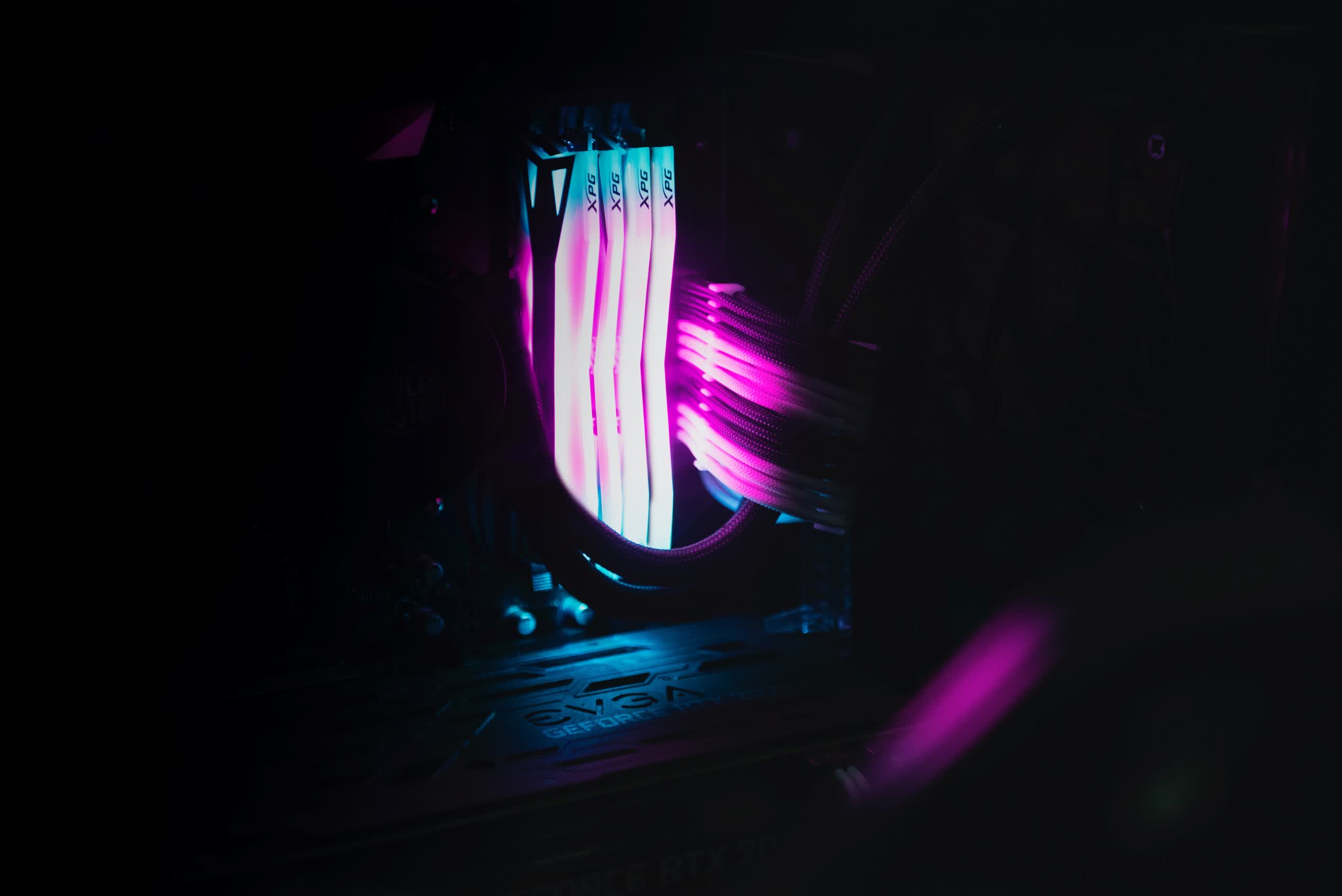In context: Intel’s upcoming 12th-gen Core processors, codenamed Alder Lake, are rumored to support both DDR4 and DDR5. A battle between the two is brewing, but courtesy of Userbenchmark, we’ve got a preview of the potential outcome.

In the lead up to the next-gen processors’ launch, leakers have been dropping a healthy amount of links to public Userbenchmark and Geekbench results. Their efforts have culminated in enough overlap to distill some meaningful numbers.
Two Userbenchmark results both belong to 16-core, 24-thread Alder Lake processors, presumably the Core i9-12900 or i9-12900K. One was inside an HP Omen system, while the other was in an OEM test bench. They have slight differences, but they’re overall quite similar -- with one exception. One had 32 GB of Kingston DDR4-3200 memory, while the other had 32 GB of Micron DDR5-4800.
Disclaimer: this isn’t an apples-to-apples comparison. One CPU had an average clock speed of 3.05 GHz during the test, and the other ran at 3.65 GHz. They weren’t under controlled test conditions. But memory tests are fairly resilient to small changes, so the two scores can still be pitted against each other to create a baseline for what we should expect.
DDR5-4800 vs. DDR4-3200
DDR5 results in bold.
| Single-core | Multi-core | |||
|---|---|---|---|---|
| Read | 15.4 GB/s | 15.4 GB/s | 33.6 GB/s | 41.5 GB/s |
| Write | 31.4 GB/s | 30.2 GB/s | 30.8 GB/s | 37.0 GB/s |
| Mixed | 22.4 GB/s | 22.1 GB/s | 30.2 GB/s | 28.8 GB/s |
The results for both were remarkably similar in the single-core test, which might indicate that the processor or motherboard was bottlenecking the memory. In the multi-core test, the DDR4 outperformed the DDR5 by a ~20% margin in the read and write tests, but fell slightly behind in the mixed test.
DDR5 did best in the latency test. At a 128 MB data width, the DDR4 required 136 ns to be accessed and the DDR5 required 87 ns. A surprising outcome, compared to past leaks.
All up, the DDR5 results were mediocre. They suggest that, broadly, DDR5-4800 will be a starting point for DDR5 that’s similarly performant to typical DDR4 kits.
Fortunately, DDR5 isn’t limited to 4800 MT/s. DDR5-6400 is inbound, DDR5-8400 is under development, and DDR5-12600 is being talked about. DDR5 could achieve superiority in just a year's time.
Image credit: Pedro Henrique Santos
https://www.techspot.com/news/90795-ddr5-4800-trades-blows-ddr4-3200-leaked-alder.html